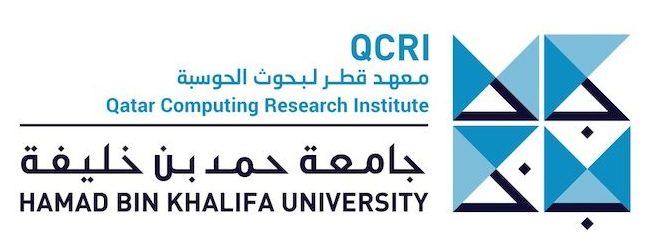Date: Fall, 2020
Location: Researchery (Hamad Bin Khalifa Research Complex), Multipurpose Room
Introduction
The purpose of this symposium is to bring together researchers, practitioners, students, and industry experts in the fields of machine learning, data mining, and related areas to present recent advances, to discuss open research questions, and to bridge the gap between data analytics research and industry needs on certain concrete problems.
The MLDAS symposium will serve as a platform for exchange of ideas, identification of important and challenging applications, and discovery of possible synergies.
We will address the topics of interest through both invited and contributed talks describing (1) research ideas, (2) new challenges, (3) mature research and (4) practical results. The symposium program will consist of presentations by invited speakers of both industry and academia, and by the authors of the papers submitted to the symposium. In addition, we will have a panel discussion to identify important research problems and applications.
Submissions
We would like to invite authors to send in contributed submissions – FULL papers or POSITION papers – on any of the topics of interest of the symposium: machine learning, data mining, applied machine learning techniques, data analytics solutions.
Submissions to MLDAS 2020 are due by February 24, 2020 at 11:59 PM Pacific Standard Time.
The submissions page is here.
Registration
Registration for MLDAS 2020 is open.
Researchers, students, and practitioners interested in attending the symposium are invited to register by March 17, 2020. To register, please click HERE.
The attendance to the symposium is limited to 120 attendees and registration requests received after March 17, 2020 cannot be guaranteed.
Organization
MLDAS is organized by the Qatar Computing Research Institute (QCRI) and by The Boeing Company.
Chairs
MLDAS is co-chaired by Sanjay Chawla (QCRI), Dragos Margineantu (Boeing Research & Technology) and Amin Sadeghi (QCRI).
Please click here to contact the MLDAS co-chairs.
For more information about the different talks, click here.
Current List of Speakers

Mohammed J. Zaki
Professor, Computer Science Department, Rensselaer Polytechnic Institute

Ian Davidson
Professor of Computer Science, University of California

Fabrizio Sebastiani
Director of Research, ISTI-CNR

Divyakant Agrawal
Professor of Computer Science, UCSB

Mustapha Rachdi
Professeur de Statistiques, Univ. Grenoble-Alpes

Paolo Papotti
Assist. Professor at EURECOM
BIO
Paolo Papotti is an Assistant Professor (MdC) at EURECOM, France since 2017. He got his PhD from Roma Tre University (Italy) in 2007, and had research positions at the Qatar Computing Research Institute (Qatar) and Arizona State University (USA). His research is focused on data integration and information quality. He has authored more than 90 publications, and his work has been recognized with two “Best of the Conference” citations (SIGMOD 2009, VLDB 2016), a best demo award at SIGMOD 2015, and two Google Faculty Research Award (2016, 2020). He is associate editor for the ACM Journal of Data and Information Quality (JDIQ).

Sihem Amer-Yahia
Research Director, CNRS, LIG

Josef Musil
Associate Partner at Foster + Partners
BIO
Josef Musil is an associate partner and a computational designer at Foster + Partners in London, where he is part of the research and computational design oriented Specialist Modelling Group. In his work he focuses on applied research, application of new technologies, and algorithmic design to complex architectural and geometrical challenges informed by environmental analysis or manufacturing constraints. Josef studied as a Fulbright scholar at the University of Pennsylvania, School of Architecture, where he received his research MArch degree within the topics of computational design. Josef worked as a researcher or a tutor at UPenn, USC, UCL, and AA Visiting School. Josef is enthusiastic about bridging computer science or other sciences with architecture and applications of machine learning in environmental design.

Hassan Sajjad
Scientist, Arabic Language Technologies, QCRI

Jaideep Srivastava
Research Director, Social Computing, QCRI

Luluwah Al Fagih
Assistant Professor, HBKU

Abdelkader Baggag
Senior Scientist, QCRI
BIO
Dr. Baggag is a senior scientist at the Qatar Computing Research Institute. Dr. Baggag’s research focuses on developing data-driven models for finding patterns in complex data (health and mobility data) and implementing these methods in high-performance solutions; in particular multidimensional data and sequence of states data to support domain experts in eHealth for analyzing large-scale wearable sensor signals. Prior to joining QCRI, Dr. Baggag was a professor at McGill and then Laval Universities in Canada – tenured. His research interests span Machine Learning; Representation Learning; Temporal Causal Modeling; Artificial Intelligence for Health and Mobility Analytics and Missing Data Imputation. Lately, Dr. Baggag has been focusing on optimal transport and matrix completion exploiting techniques about approximating matrix functions.
